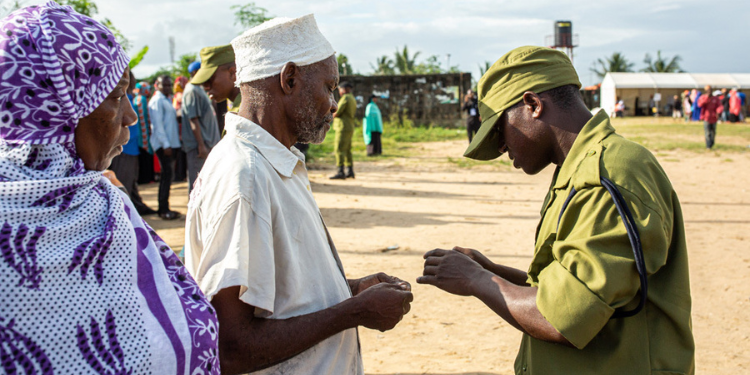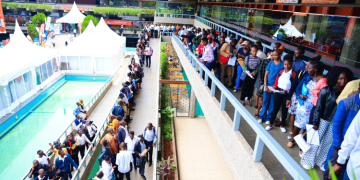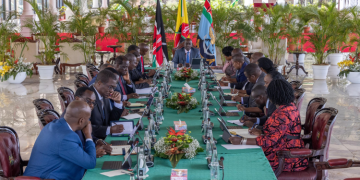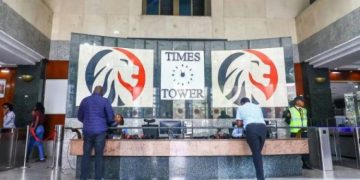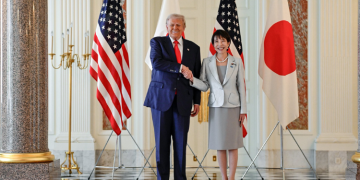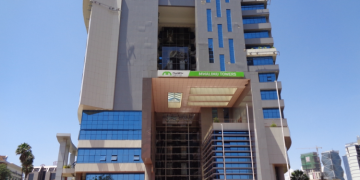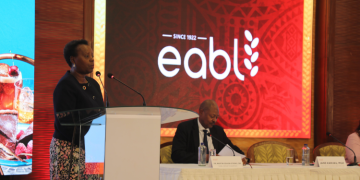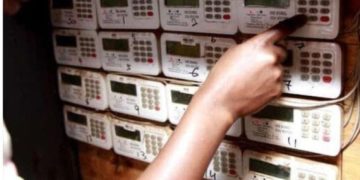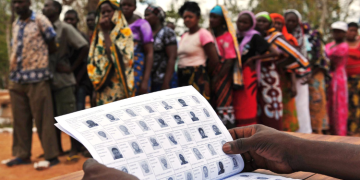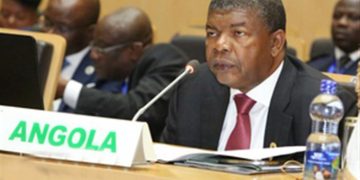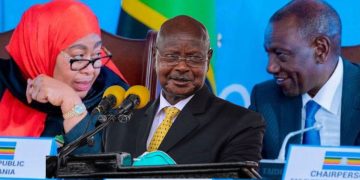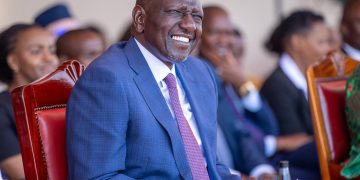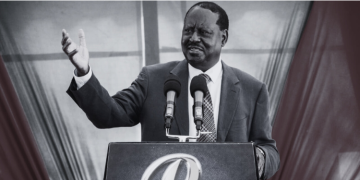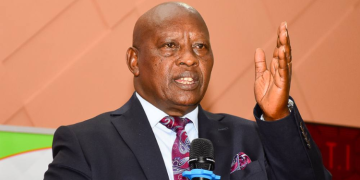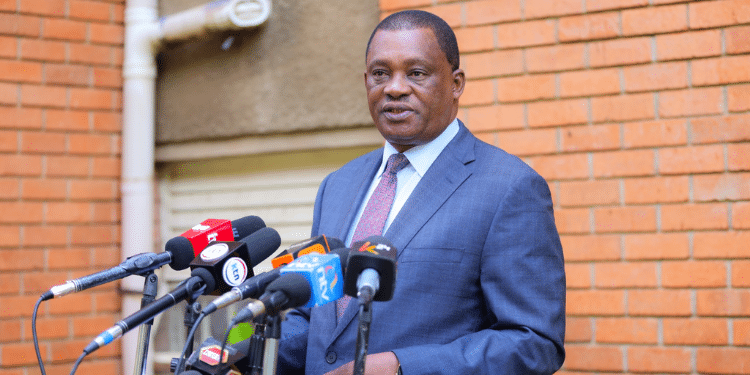Tanzania (United Republic of Tanzania) heads to the polls on October 29, 2025, under a new legal framework established by the Presidential, Parliamentary, and Councilors’ Elections Act No. 1 of 2024 and the Independent National Electoral Commission (INEC) Act No. 2 of 2024.
The laws, effective from April 12, 2024, govern the entire electoral process, from voter registration to the declaration of results.
Elections in Tanzania are held simultaneously every 5 years to elect the Union President, members of the National Assembly (Parliament), and local government councilors.
Full Step-by-Step Electoral Process
Tanzania Election Management
The Independent National Electoral Commission (INEC) is the central body managing elections.
Its structure includes:
- Chairperson and Vice Chairperson
- Five Commissioners, all appointed by the President
- Director of Elections (chief executive)
- Secretariat, Regional Coordinators, Returning Officers, and Registration Officers
The Commission is accountable to Parliament and must present post-election reports for scrutiny.
The commission enforces nomination rules for candidates from political parties and verifies qualifications in accordance with the National Elections Act.
It also handles objections, withdrawals, or disqualifications during the nomination period.
INEC handles the printing and distribution of ballot papers, the deployment of polling officials, the accreditation of observers, and security coordination in collaboration with law enforcement agencies.
INEC has the final authority to declare official results for presidential, parliamentary, and local government elections.
For presidential elections, results announced by the INEC Chairperson are final and not subject to court challenge under the Constitution.
Who Is Eligible to Vote?
To be registered as a voter in Mainland Tanzania, an individual must be a Tanzanian citizen by birth or naturalization (dual nationals are eligible only if they retain Tanzanian citizenship) and must be 18 years or older on polling day.
The individual must also be a resident in the ward where they seek to register, and temporary absence for work or study does not disqualify if the ward remains their primary residence.
Tanzanians living abroad are not eligible to register or vote unless they maintain official residency in a mainland ward.
They must also be of sound mind, with individuals certified as mentally unfit by a medical board barred from registration.
Those serving a prison sentence of more than 6 months, convicted of an electoral offence within the past 5 years, under a court order barring voting rights, or who have sworn allegiance to a foreign state are disqualified.
Disqualification due to imprisonment ends upon release, provided the sentence was fully served.
Tanzania has implemented a fully biometric voter registration system, eliminating paper-based methods to enhance accuracy, prevent duplication, and minimize fraud.
The final voters’ register is then published and permanently locked except by court order.
The Permanent Voter’s Card becomes the sole proof of registration; lost cards can be replaced for a TZS 1,000 fee (Ksh51) at the original registration center.
Materials are produced in Kiswahili and English, with simplified versions for low-literacy areas.
Candidate Nomination
Candidate nomination forms the critical gateway to Tanzania’s electoral contest, ensuring only qualified individuals appear on the ballot for the Union President, National Assembly (Parliament), and local government councilors.
Each aspirant must submit a completed nomination form to the designated Returning Officer by 4:00 PM on nomination day, accompanied by a non-refundable deposit—TZS 5 million(Ksh259,350) for presidential candidates, TZS 500,000 (Ksh25,935) for parliamentary, and TZS 100,000(Ksh5,200) for councilors—payable via bank draft to INEC.
A statutory declaration sworn before a Commissioner for Oaths (Judge for President/Vice President, Magistrate for others) affirms eligibility: Tanzanian citizenship, age 35+ for President, 21+ for MP/councillor, no undischarged bankruptcy, no electoral offence conviction in the past five years, and at least 200 supporters from 10 or more regions (including two from each of at least two regions) for presidential contenders, 25 registered voters from the constituency for MPs, or 10 from the ward for councillors.
Upon submission, the Returning Officer issues a receipt, and a 24-hour objection window opens for any registered voter to challenge a nomination on grounds of ineligibility or procedural flaws.
INEC headquarters receives certified copies of all approved nominations and publishes the provisional candidate list within 48 hours in the Government Gazette, at constituency/ward offices, and online at www.inec.go.tz.
A final appeal window of 3 days allows rejected aspirants to challenge the decision before the High Court, whose ruling is binding and must be issued within 7 days.
Successful presidential candidates are paired with their running mates (Vice President), who must also meet identical eligibility criteria and submit joint nomination papers.
Special seats for women, comprising one-third of Parliament, are allocated post-election based on proportional party performance; parties submit ranked lists of female nominees during the same nomination period, subject to the same deposit and oath requirements.
Once the final candidate list is gazetted, no withdrawals are permitted except in cases of death, and the official campaign period begins 60 days before polling day.
Campaigning
Campaigning officially begins 60 days before polling day and ends 24 hours prior to polling day.
Every registered political party and candidate must submit a detailed campaign schedule—including dates, venues, and rally times—to the local Returning Officer at least 48 hours in advance.
Spontaneous events are prohibited to prevent clashes and ensure security coordination.
Billboards, posters, and digital ads are permitted but must carry the publisher’s imprint and be removed within 7 days post-election.
The Electoral Code of Conduct explicitly prohibits bribery, vote-buying, intimidation, hate speech, and the use of public resources, including government vehicles, offices, or funds, for campaign purposes
Civil servants must remain neutral, and any official found campaigning faces immediate suspension and prosecution.
Candidates are barred from distributing cash, food, alcohol, or gifts intended to influence voters, with penalties including disqualification and a 10-year ban from public office.
Spending is strictly capped: TZS 5 billion (Ksh259 M) for presidential candidates, TZS 200 million (Ksh10 M) per parliamentary seat, and TZS 50 million (Ksh2.5 M) per councilor race
All expenditures must be recorded in real time and submitted in a final financial report to INEC within 30 days after polling, and the report must be audited by a certified accountant.
Failure to file or exceeding limits triggers automatic disqualification and referral to the Prevention and Combating of Corruption Bureau (PCCB).
Rallies must end by 6:00 PM in urban areas and 5:00 PM in rural zones, with no loudspeakers after 10:00 PM anywhere.
Voting Day
Approximately 33 million registered voters across Mainland Tanzania will cast secret ballots for the Union President, National Assembly (Parliament) members, and local government councilors in a single, synchronized process on October 29.
Polling stations open nationwide at 7:00 AM and close sharply at 4:00 PM, with every station strategically located within 2 km of voters’ residences, typically in schools, community halls, or government buildings.
Each station serves 400–600 voters and is staffed by a Presiding Officer, Assistant Presiding Officers, Polling Clerks, and Security Personnel (police), all appointed and trained by INEC.
Up to two polling agents per candidate or party are allowed inside, alongside accredited domestic and international observers.
The station setup includes three separate sealed ballot boxes—one each for President, MP, and Councillor—clearly labelled and demonstrated empty before voting begins.
Voters must present their Permanent Voter’s Card and undergo biometric fingerprint verification.
No card or failed scan means no vote, though a manual override is available only with Presiding Officer approval and agent consensus in rare technical failures.
Phones and cameras are restricted in the booth, and assistance is available for disabled or illiterate voters.
Vote Counting & Tallying
Vote counting begins immediately after polls close at 4:00 PM.
The Presiding Officer, in the presence of candidates, agents, observers, and police, opens each ballot box and counts votes aloud.
Each polling station uses standardized forms (Forms 13, 21A/B/C, 22A/B/C, etc.) to record the number of ballots received, used, unused, and spoiled.
Reconciliation of figures is mandatory before counting proceeds.
The Presiding Officer signs and certifies the results, which are then posted publicly at the station. Copies are distributed to agents and submitted to the Returning Officer along with all election materials.
Polling agents may request up to two recounts.
Any objections or complaints are recorded on official forms and resolved on-site.
At the constituency level, the Returning Officer aggregates results from all polling stations.
Only authorized personnel, including candidates, agents, and observers, are permitted entry.
In the event of a tie, a recount is conducted, with the candidate with the highest number of valid votes being declared the winner, issued a certificate, and the results are published at the constituency office and in the Government Gazette.
At the national level, the Independent National Electoral Commission (INEC) compiles and verifies all constituency and ward results.
It announces the elected President, Vice President, Members of Parliament, and Councilors, and issues official certificates.
INEC is authorized to use technology in the tallying process, and all procedures are governed by the 2024 electoral laws and 2025 regulations.
All election documents are securely stored for six months and destroyed thereafter unless a court orders otherwise.
Dispute Resolution
Election results may be challenged through petitions filed within 30 days of declaration.
The High Court handles parliamentary disputes, while Resident Magistrate’s Courts oversee councilor-related petitions.
Petitioners must provide security for costs, and available remedies include nullification of results, invalidation of nominations, or scrutiny of ballots —up to TZS 5 million(Ksh259,350) for parliamentary cases and TZS 500,000 (Ksh25,935) for councilor disputes.
All petitions must be resolved within 6 to 12 months, with extensions permitted by the Chief Justice.
Grounds for petitions include corrupt or illegal practices, non-compliance with electoral laws that may have affected the outcome, candidate ineligibility, bribery, impersonation, double voting, and votes cast by ineligible persons.
Courts may declare an election void, order a fresh poll, or strike off disputed votes.
Official Presidential Candidates – Tanzania 2025
Samia Suluhu Hassan – Chama Cha Mapinduzi (CCM)
Saum Hussein Rashid – United Democratic Party (UDP)
Kunje Ngombale Mwiru – Alliance for African Farmers Party (AAFP)
Yustas Mbatina Rwamugira – Tanzania Labour Party (TLP)
Wilson Elias Mulumbe – Alliance for Democratic Change (ADC)
Augustine Lyatonga Mrema – National League for Democracy (NLD)
Hashim Rungwe Mapunda – Chama Cha Kijamii (CCK)
John Momose Cheyo – Chama cha Makini
Seif Hamad Magango – National Reconstruction Alliance (NRA)
Paul Rupia – United Peoples’ Democratic Party (UPDP)
Stephen Masato Ngulube – Civic United Front (CUF)
Joseph Musukuma Mbilinyi – Tanzania People’s Party (TPP)
Godfrey Zambi – Movement for Unity and National Uplift (MUNU)
Leonard Samwela – NCCR–Mageuzi
Michael Ngaleku – Progressive Party of Tanzania (PPT)
Anna Mghanga – TaSiKwa (Tanzania Sisi Kwa Wote)
Juma Duni Haji – Democratic Party (DP)
Barred or Disqualified
- Tundu Lissu (CHADEMA) – Disqualified after arrest and treason charges.
- Luhaga Mpina (ACT–Wazalendo) – Disqualified over nomination irregularities.
- CHADEMA Party – Entirely disqualified for failing to sign the electoral code of conduct by April 2025.
A total of 17 candidates were approved by INEC, though the race is widely seen as favoring the incumbent, Samia Suluhu Hassan, due to the disqualification of major opposition figures and limited campaign activity by minor parties.
Also Read: Samia Suluhu: Profile of Tanzania’s First Female President with a Master’s Degree from UK
As Tanzania heads to its 2025 general election, the integrity of the process, from voter eligibility and biometric registration to transparent vote counting and result declaration, will be a decisive measure of the country’s democratic resilience.
Follow our WhatsApp Channel and X Account for real-time news updates.
